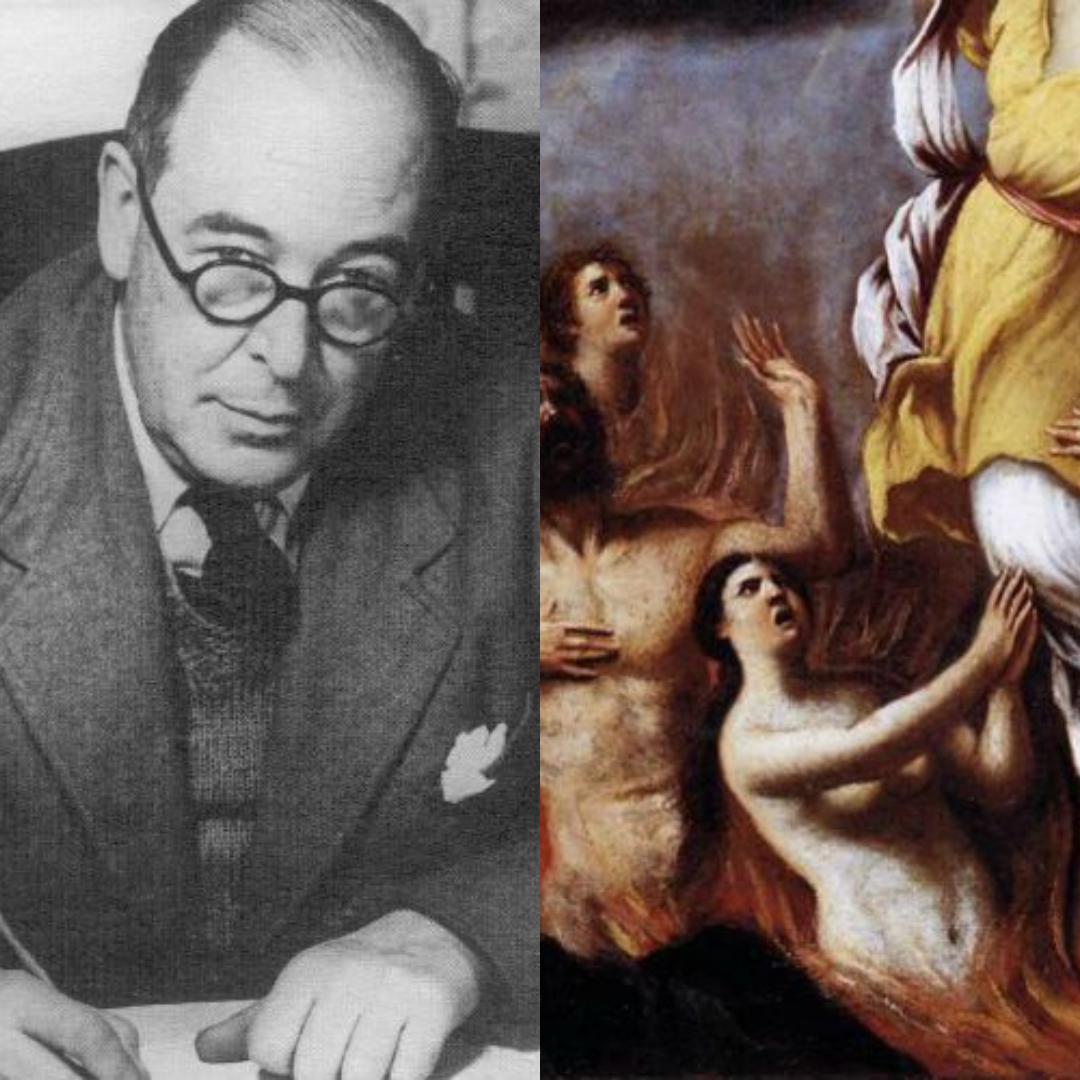C.S. Lewis is widely considered to be one of the best Christian apologists of the 20th century. Though he was converted by his Catholic friend J.R.R. Tolkien, Lewis decided to join the Protestant Church of England, which he remained until his death.
Which makes this fact a bit strange: he believed in Purgatory.
The doctrine of Purgatory is the belief that Christians may undergo a period of purification by grace after death but before entering heaven. The Church also teaches that Christians alive on earth can pray for the dead in purgatory and quicken their entry into heaven. These were major tenets of Catholicism that 16th-century Protestants rejected.
In his book Letters to Malcolm: Chiefly on Prayer, published posthumously in 1964, Lewis gives a fictional friend advice about the spiritual life.
In Letter 20, we find his surprising words about Purgatory.
“Of course I pray for the dead,” Lewis writes. “The action is so spontaneous, so all but inevitable, that only the most compulsive theological case against it would deter me.”
When his fictional friend challenges him that he’s just advocating the Catholic doctrine of Purgatory, he responds clearly:
“Well, I suppose I am. […] I believe in Purgatory.”
He goes on to explain that, in his view, the Catholic doctrine of Purgatory had become warped by the 16th century, and that both earlier versions (e.g. Dante’s vision of Purgatory) and modern versions (e.g. Blessed John Henry Newman’s view) are more palpable.
“Our souls demand Purgatory, don’t they?” he continues in his defense.
He says he thinks it would not be very loving for God to usher us into heaven despite all our attachments to sin.
“Should we not reply, ‘With submission, sir, and if there is no objection, I’d rather be cleaned first.’ ‘It may hurt, you know’–‘Even so, sir.'”
Regarding whether he thinks Purgatory is painful, he gives a very Lewis-esque common sense answer:
“I assume that the process of purification will normally involve suffering. Partly from tradition; partly because most real good that has been done me in this life has involved it. But I don’t think suffering is the purpose of the purgation. […] The treatment given will be the one required, whether it hurts little or much.”
Those who have read his other fictional works will note that he also includes a version of Purgatory in his classic book The Great Divorce.
So maybe the Catholic doctrine of Purgatory shouldn’t be so scary for Protestants after all? 😁

